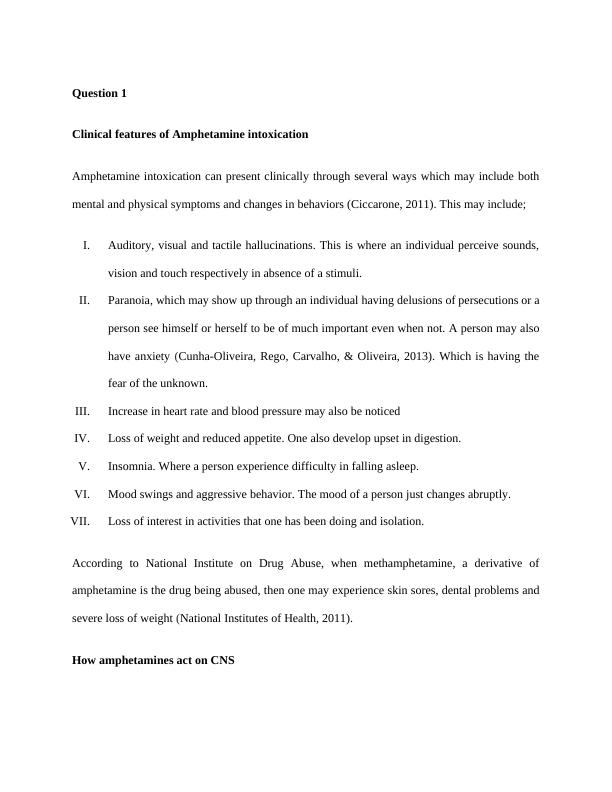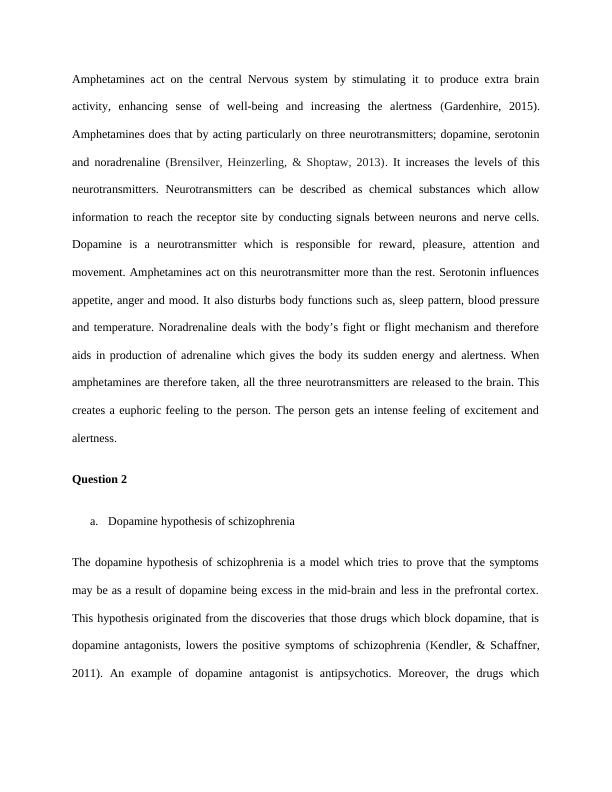Clinical Features of Amphetamine Intoxication and Dopamine Hypothesis of Schizophrenia
Answering questions related to a case study of a 23-year-old male with substance-induced psychosis and later diagnosed with schizophrenia.
9 Pages1966 Words255 Views
Added on 2023-06-04
About This Document
This article discusses the clinical features of amphetamine intoxication, how amphetamines act on the CNS, dopamine hypothesis of schizophrenia, other neurotransmitters associated with schizophrenia, auditory hallucination manifestation and areas of the brain involved, and medications to alleviate symptoms. It also includes side effects of antipsychotics, benzodiazepines, and tiapride.
Clinical Features of Amphetamine Intoxication and Dopamine Hypothesis of Schizophrenia
Answering questions related to a case study of a 23-year-old male with substance-induced psychosis and later diagnosed with schizophrenia.
Added on 2023-06-04
ShareRelated Documents
End of preview
Want to access all the pages? Upload your documents or become a member.
Signs and Symptoms of Severe Depressive Episodes
|18
|4926
|47
The Strategic Analysis of Myer
|4
|790
|35
Mental Health and Schizophrenia in Criminal Justice
|7
|1490
|358
Categories of Drugs and their Effects
|7
|2073
|352



